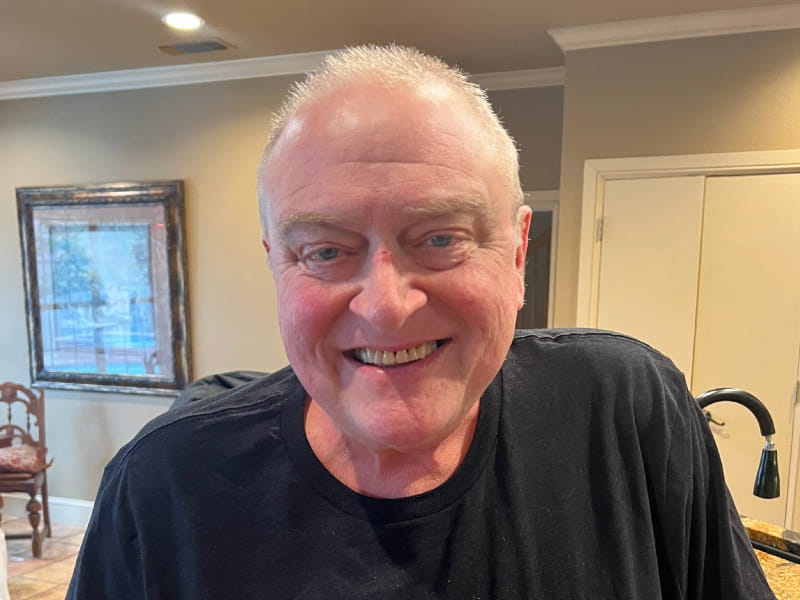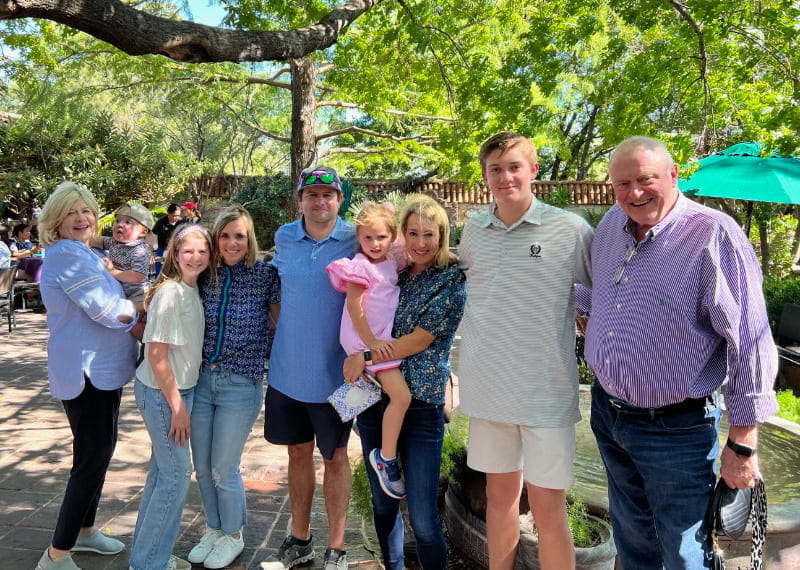Dallas radio personality gets a new heart after cardiac problems take a toll
By Tate Gunnerson, American Heart Association News

Hal Harbuck was walking from the dock to his family's lake cabin when he felt a severe pain in his chest. Having recently been water skiing, he wondered if he'd pulled a muscle. Then again, it also felt like the worst heartburn he'd ever felt.
He eventually realized he might be having a heart attack.
He sat on the sofa and chewed on an aspirin while his adult son, Josh, called the nearest hospital, which was more than a half-hour drive away. An ambulance was sent; to save time, they met it midway there.
Doctors asked Harbuck about his lifestyle. He told them that he'd recently stopped smoking. How recently?
"About 30 minutes ago," he said.
The line drew laughter, as Harbuck expected. After all, under the name Hal Jay, his quick wit and distinct, wheezy laugh have been a staple on Dallas radio since 1981.
The ER scene played out 17 years ago. Harbuck had a heart attack. Doctors implanted two stents to restore blood flow to his heart. A month later, he received a pacemaker-defibrillator to further regulate a steady heart rhythm. He kept his vow to stop smoking.
Then, in October 2022, Harbuck experienced an often-fatal type of irregular heartbeat known as ventricular tachycardia. A few months later, he was walking to his bedroom when he had another episode of VT and collapsed. Paramedics told his wife that his defibrillator had shocked his heart back into a normal rhythm. At the hospital, he experienced two more VTs.
With his heart weakened by the cardiac events, Harbuck went into heart failure. Doctors soon broke the news: He needed a new heart.
"Sometimes when the heart gets shocked for abnormal heart rhythms, it's just a little bit weaker than it was beforehand, and that's really what happened with him," said Dr. Shelley Hall, an advanced heart failure and transplant cardiologist. "He just couldn't take it anymore."
During the medical exams required to be placed on the transplant list, doctors saw a spot on his lung. During a biopsy, Harbuck had another VT. It weakened his heart so much that he was assigned a higher priority on the transplant list.
Hall told Harbuck to expect a wait of as long as four months for a suitable match. It took only 10 days.
On his way into the operating room, Harbuck said a prayer. He said he also felt comforted by "the presence" of his son, Josh, who had died in a car accident in 2017.
When he woke up after the transplant, Harbuck thanked God and promised Josh that he would continue watching over his son's children, 14-year-old Hudson and 12-year-old Harper.

The next day, nurses encouraged Harbuck to get up on his feet. They accompanied him as he slowly walked to the end of the hallway and back.
Harbuck saw how much his heart rate spiked with that minimal activity. He vowed to exercise regularly to care for his new heart.
"A family donated it to me," he said. "I want to be a good representative of their love."

After 33 days in the hospital, Harbuck went home.
At first, he needed help from his wife, Ann, to get dressed and shower. Slowly, with the help of cardiac rehabilitation – which he called "the greatest thing I've ever done" – he could do more and more on his own. He said it gave him the confidence to push himself without worrying about having another cardiac event.
While the new heart gave him life, he said rehab allowed him to return to really living. Such as returning to the airwaves.
Driving into the studio before sunrise for his first broadcast with his new heart, Harbuck felt free. After all he'd been through, there were no more limitations. He would soon be back behind the mic, once again inhabiting his role as Hal Jay for a large audience.
Naturally, he shared his story with listeners, urging them to take care of themselves and, most importantly, to sign up to be an organ donor.
Harbuck also encourages everyone to "just treat people with kindness," he said. "If you have God, family and friends, you have a pretty full life."
Stories From the Heart chronicles the inspiring journeys of heart disease and stroke survivors, caregivers and advocates.





